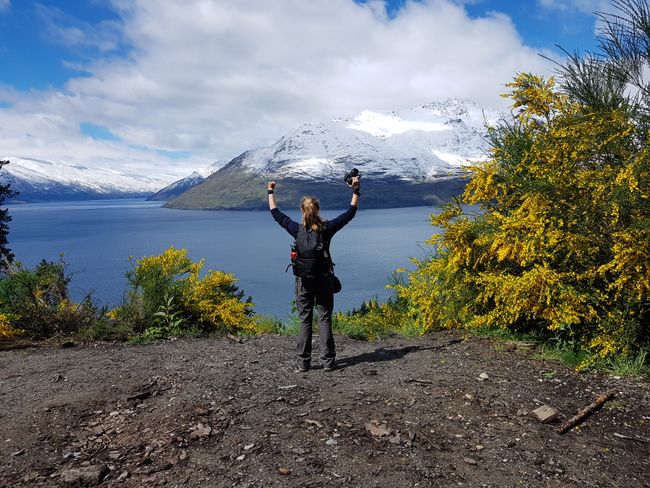Between fog and bubbling boiling pools
Апублікавана: 28.10.2017
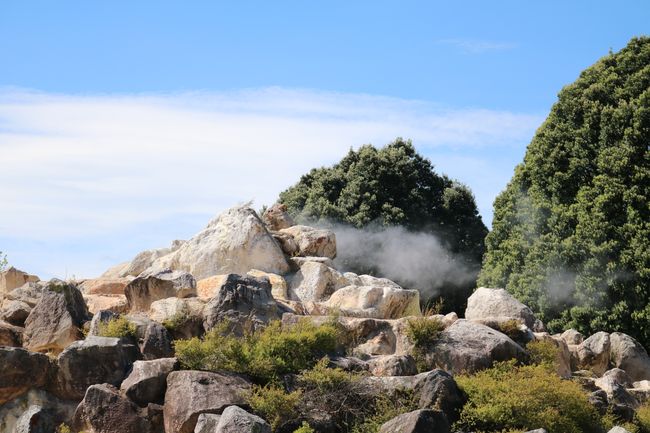
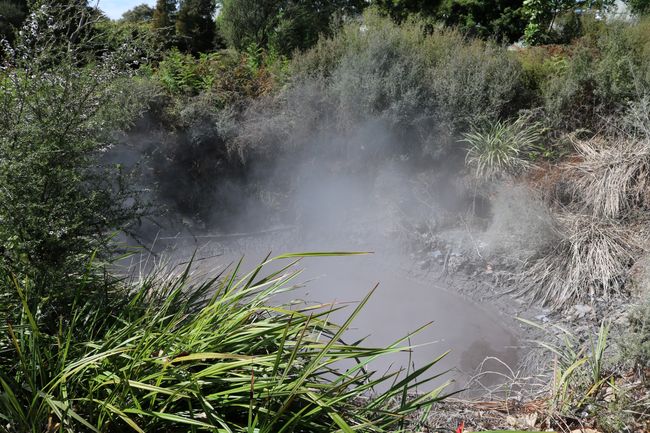
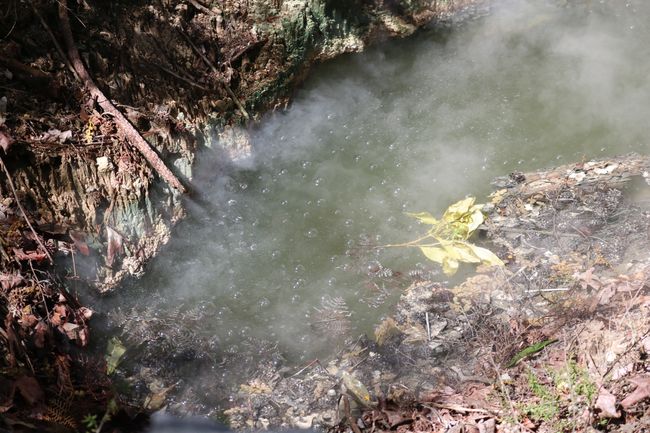
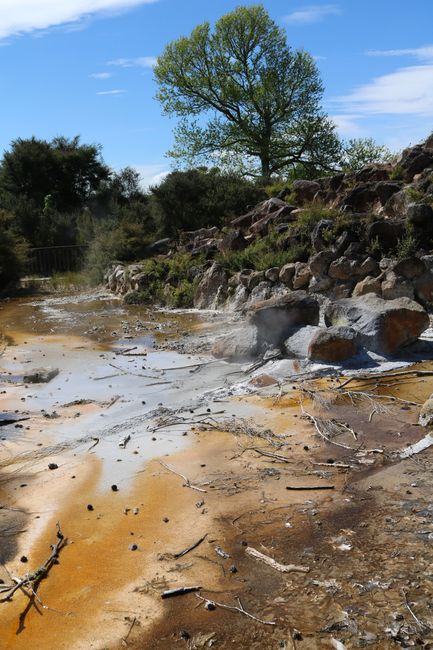
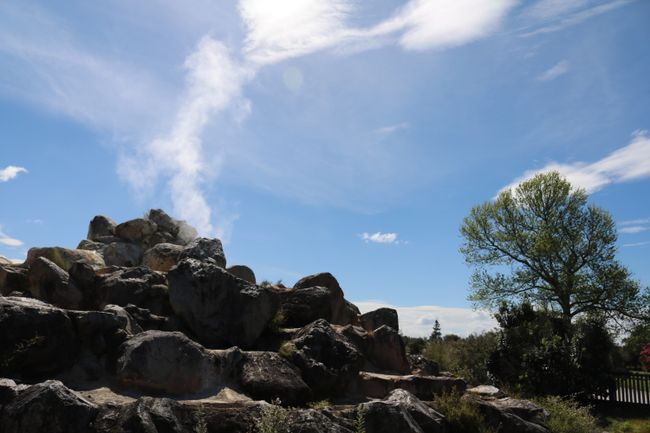
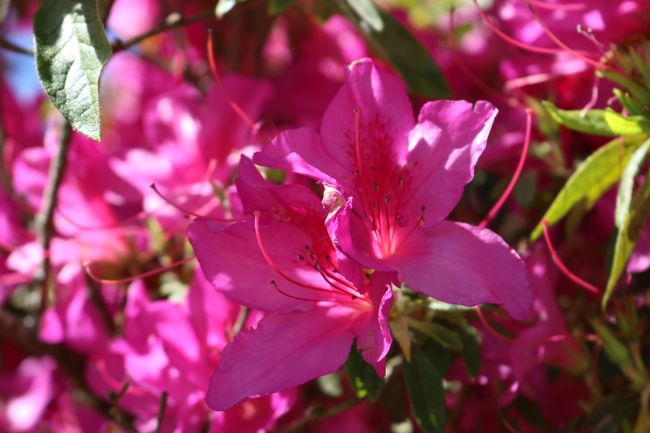
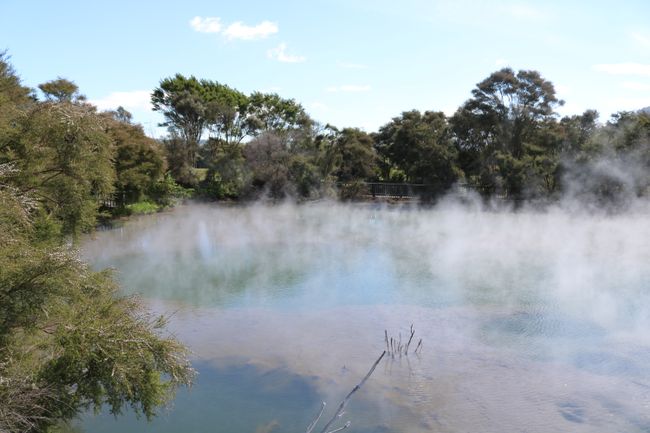
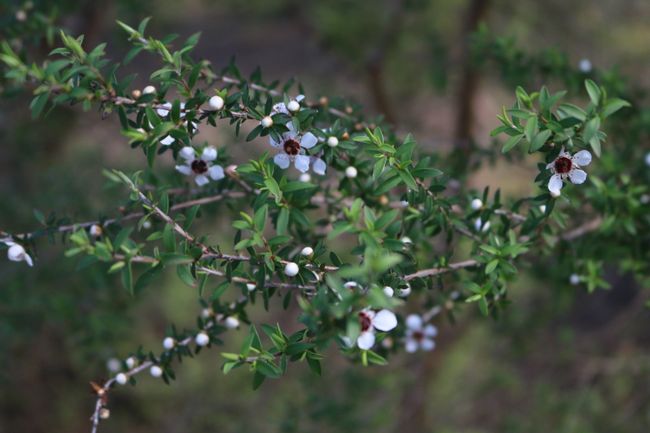
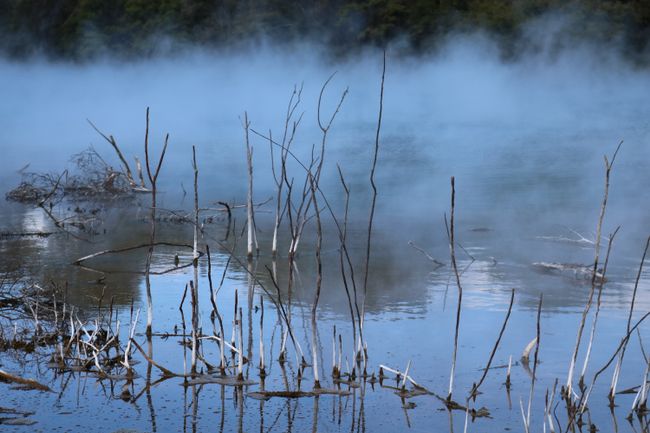
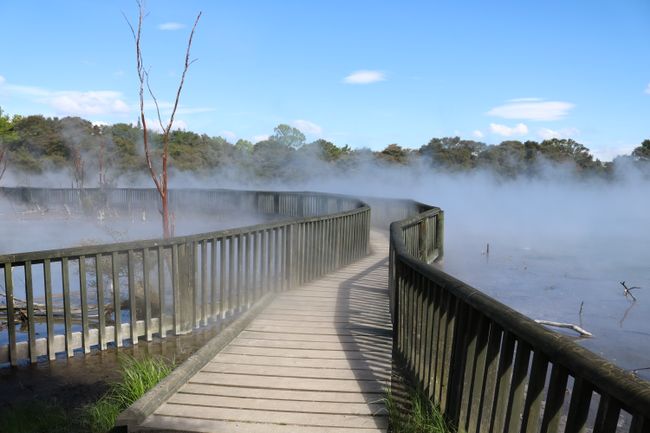
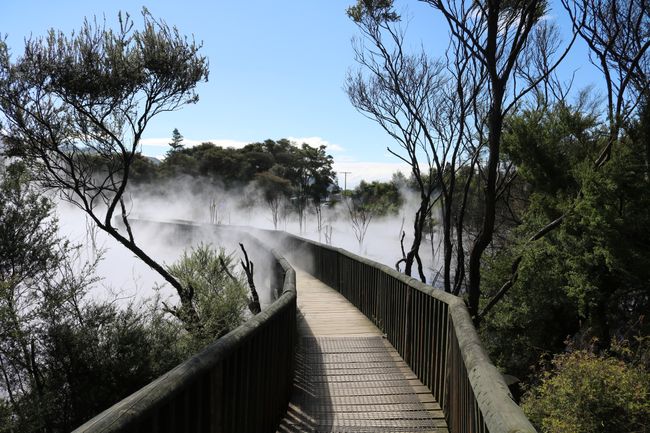
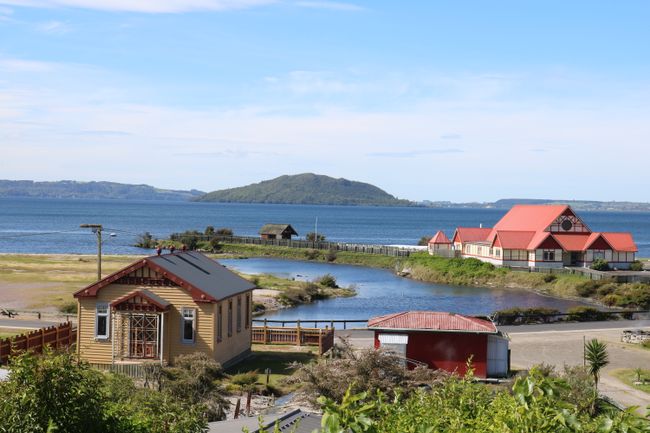
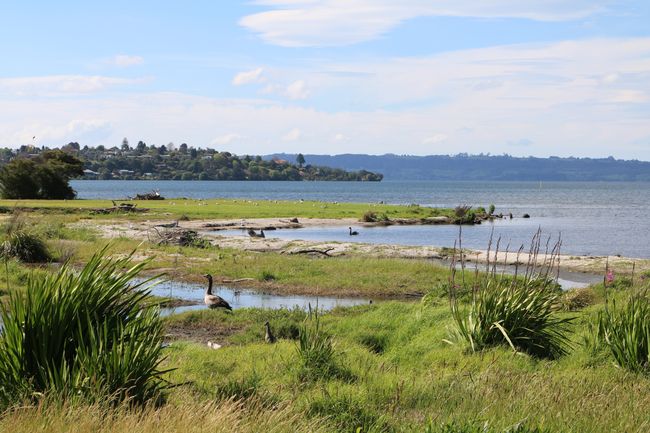
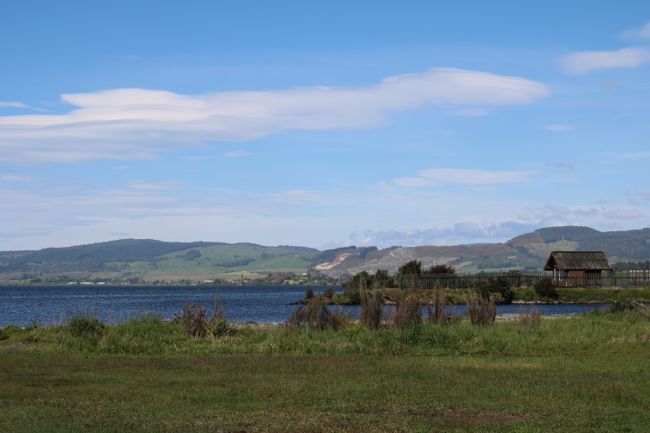
Падпісацца на рассылку
When the bus doors opened after a five-hour ride, a pungent smell hit us directly. You would think that the air on the bus with 45 passengers would be worse than anything else. But we would have preferred to get back on the bus right away because Rotorua definitely smelled like a mixture of rotten eggs and the last visit to the toilet. More precisely, it smelled strongly of hydrogen sulfide, but since not everyone can identify this smell, but probably has been to a public toilet at some point, I thought that this comparison would be more fitting. To those who find this unfair and childish, I apologize. But I can't help it. So... where were we...
To find the source of the smell, all you had to do was take a closer look. White steam rose from many cracks in the earth and spread in all directions. Rotorua is located on the Pacific Ring of Fire and is therefore New Zealand's number one geothermal hotspot.
Since we had to endure the smell (even the hostel room smelled like it because the window was broken and therefore open continuously), we went directly to a small park consisting of a collection of bubbling mud pools, hot springs, and boiling lakes. The sight was equally impressive and terrifying. Any plants around this spectacle were dead and swayed gently in the steam. If we didn't know better, this sight could have passed as a cloud production machine. The Maori have already been using the geothermal power of Rotorua for cooking and, depending on the temperature, bathing. Even today, the pools are still used to heat thermal pools and even entire streets when they are not just serving as tourist magnets.
After the sulfur fumes had completely confused us, we decided to take a detour to Lake Rotorua. Even there, there were occasionally bubbling pools, even in the middle of the lake itself. But the local animals seemed to know exactly where to enjoy a good swim. From a distance, we could observe a gathering of birds leisurely enjoying the sun or taking a bath. The swans, however, were black. Everyone can decide for themselves what that means at a geothermal hotspot.
In addition to bubbling water, fog, and not so colorful bird life, we were particularly impressed by the Maori culture, which is still highly valued here. Most street names are still in the language of the indigenous people of New Zealand, and almost everywhere there is a translation in Maori alongside English texts. Small temples also lined almost every corner. Nevertheless, Rotorua does not lag behind any other city in anything. Indigenous culture, globalization, and technologization meet and create a distinctive image. Fascinating. This would probably not be possible in Germany.
If the egg-toilet-sulfur smell didn't bite so hard here, Rotorua would be a really beautiful city. But there are people who quickly get used to such a stench. Unfortunately, we are not among them. Nevertheless, it was breathtaking.
Падпісацца на рассылку
Адказ

Справаздачы аб падарожжах Новая Зеландыя

